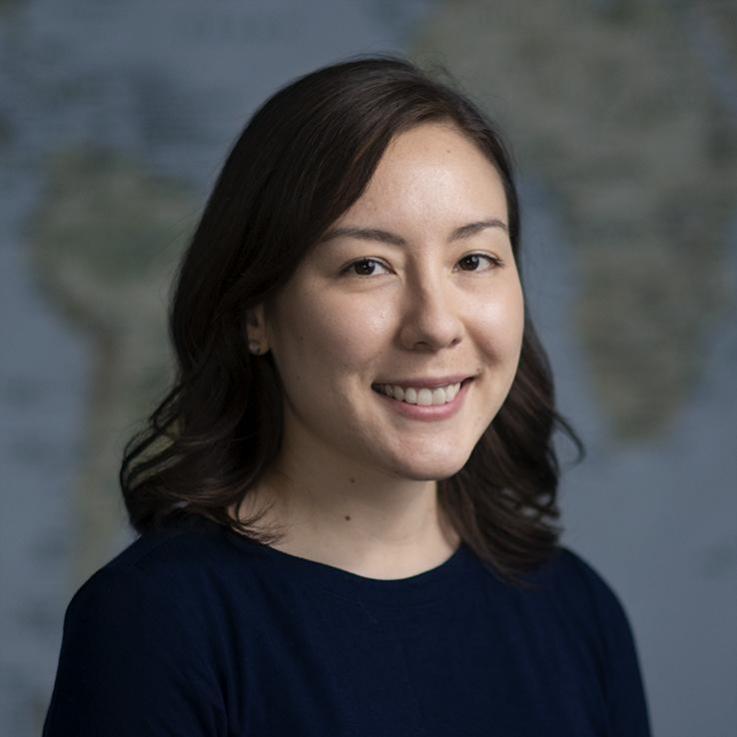With a background that includes ESL teaching in Korea, social work, and health education for King County, Stephanie Edlund-Cho is the Program Operations Specialist for the Global Center for Integrated Health of Women, Adolescents, and Children (Global WACh). In this role she creates opportunities for students, staff, and faculty alike while handling vital day-to-day operational tasks.
Q: How long have you worked in the Department of Global Health?
A: I’ve been with the department since July 2017, but I could say it’s been longer. I completed one of my practicums for my Master of Social Work (MSW) program at the Global Health Resource Center during Fall 2013 and Winter 2014 quarters. I coordinated monthly global health film screenings and the Global Health Career Week activities, and was part of the planning committee for the 11th Western Regional International Health Conference titled “Uncensored: Gender, Sexuality, and Social Movements in Global Health.”
Q: Can you briefly explain what Global WACh is? How did you get involved?
Global WACh is a research and training center that bridges disciplines to improve woman, adolescent, and child health. Our research approach focuses on critical windows where healthcare interventions can have long-term benefits across the lifecycle. We support several faculty and trainees leading 30+ studies under our three scientific priority areas (HIV and Co-Infections Through the Lifecycle, Gut Health and Child Survival, and Family Planning Decision Support). We offer opportunities for students, fellows, and junior investigators to explore interests in WACh health and develop research skills by working on our studies and through courses, guest lectures, peer working groups, and a Graduate Certificate program.
As the Program Operations Specialist, I provide support in day-to-day activities, which include communications, events coordination, purchasing, general meeting and working group scheduling, onboarding research assistants, supporting the Certificate program, and maintaining our filing systems.
As an MSW student, I had wide interests in child health and welfare, immigrant and refugee health, and the civic responsibility aspect of public sector and non-profit work. After I graduated in 2014, I worked for Public Health-Seattle & King County as a health educator for an environmental outreach and education program.
For a while, I held a second part-time job as a Program Coordinator to help launch Seattle University’s new MSW Program, which required me to work closely with faculty and incoming students. It had a lasting impression and I became interested in working for a health-related program at UW. I feel very fortunate of the timing as Global WACh was seeking a Program Coordinator. I was immediately drawn to the role, mission, studies, and people I read about on the Global WACh website. I knew from my interviews with some of the leadership team that this was where I wanted to be. I’m grateful they felt I was a good fit for the role and the team!
Q: Can you describe your experience as an ESL teacher in South Korea?
While growing up, I spent some time in South Korea with my family, but I felt compelled to return on my own after I finished my undergraduate studies. I was 20 years old and seeking a new experience that would challenge me, excite me, and allow me to learn more about myself and my heritage. I applied for the Korean government’s English Program in Korea (EPIK) that placed native English speakers in public schools as teaching aides across the country. I requested a placement in my mom’s hometown of Daegu and was assigned to co-teach 3rd and 5th graders at a wonderful elementary school there.

It was eye-opening to observe the English gap between wealthy and low-income families who can’t afford expensive after-school tutoring. It was upsetting to think how these disparities (in addition to others) could keep kids from poor families from fully participating in a globalized society as adults.
Along with the good experiences, I also experienced feelings of marginalization at times, which made me empathetic to immigrant and minority communities in the US struggling to navigate systems. My overall experience abroad made me consider a career where I could help underserved communities access care and services to improve their lives.
Q: What is the most rewarding part of your job?
I’m a results-driven person, so I enjoy making things happen for the benefit of the center. It makes me feel good when a research assistant is successfully hired on a study, when a “Breakfast with WACh” morning lecture draws a large audience, when I help researchers book flights to attend an international conference where they are presenting abstracts, when our quarterly e-newsletter is released and viewed by hundreds of people who read the latest headlines, and the list goes on. I also genuinely enjoy working with everyone on the Global WACh team and interacting with students.
Q: What are the biggest challenges you face in your current position?
Task management of seemingly never ending tasks, but that is expected in any fast-paced work environment. I’m getting better at creating and following to-do lists to stay productive, though!
Q: What advice would you give to someone who wants to pursue a similar career path?
What will make someone shine in this role are their multiple talents to find solutions independently, deliver high quality work consistently, and work effectively and collaboratively with different groups. Find an organization that fuels your passion and intellect, and emphasize your skills in interpersonal communication, multi-tasking, critical thinking, professionalism, and curiosity to keep learning.
